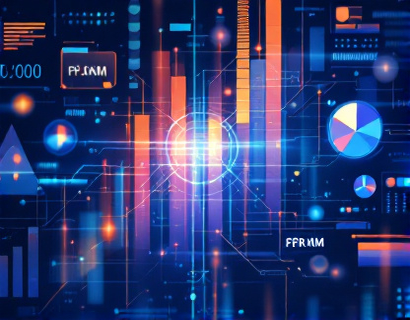Decentralized Identity: Securing Web3 Domains and Unique Handles for Enhanced Online Presence
In the rapidly evolving digital landscape, the concept of decentralized identity has emerged as a pivotal element for individuals and entities seeking to fortify their online presence. The transition from centralized to decentralized systems offers numerous advantages, particularly in the realms of security, privacy, and control. This article delves into the benefits of adopting Web3 domains and personalized online identifiers, known as @Handles, to enhance digital identity and connectivity. By exploring the intricacies of decentralized identity, we aim to provide Web3 enthusiasts and digital identity seekers with a comprehensive understanding of how to secure and leverage their online presence in the decentralized web.
Understanding Decentralized Identity
Decentralized identity, often referred to as DID, is a framework that allows individuals and entities to manage their digital identities without relying on centralized authorities. Unlike traditional identity systems where data is stored and controlled by a single entity, decentralized identity distributes control across a network of nodes. This approach not only enhances security by reducing single points of failure but also empowers users with greater autonomy over their personal data.
The core principle of decentralized identity is the use of blockchain technology to create immutable and verifiable identity attributes. These attributes, or identity credentials, can include information such as name, age, location, and professional qualifications. By storing these credentials on a blockchain, users ensure that their data is tamper-proof and transparent, yet still private and controllable through cryptographic means.
Advantages of Web3 Domains
Web3 domains, also known as decentralized domain names, are a natural extension of decentralized identity. These domains are not managed by centralized registries but are instead stored and verified on a blockchain. The primary advantage of Web3 domains is the enhanced security and privacy they offer. Since the domain ownership is recorded on a blockchain, it is resistant to censorship and manipulation by third parties.
One of the most significant benefits of Web3 domains is the ability to create unique and memorable online identifiers, commonly referred to as @Handles. These @Handles serve as personalized URLs that are easy to remember and use, eliminating the need for complex and often forgettable string of characters. For instance, instead of remembering a long domain like "example123456789.com", one can use a simple @Handle like "@exampleuser". This not only improves user experience but also reduces the likelihood of domain-related issues such as typos and misdirected traffic.
Enhancing Online Presence with @Handles
@Handles provide a powerful tool for individuals and businesses to establish a strong and consistent online presence. By using a personalized @Handle, users can create a cohesive brand identity that is easily recognizable across various platforms and services. This consistency is crucial in building trust and credibility in the digital world, where users are increasingly wary of fake or misleading online identities.
Moreover, @Handles can be integrated with decentralized applications (dApps) and services, allowing for seamless interactions and transactions. For example, a creator can use their @Handle to directly link to their portfolio, social media profiles, and crowdfunding campaigns, all accessible through a single, memorable address. This streamlined approach not only simplifies navigation but also enhances the overall user experience.
Security Benefits of Decentralized Domains
Security is a paramount concern in the digital age, and decentralized domains offer robust solutions to common security issues. Traditional domain names are often vulnerable to hijacking, phishing, and DNS spoofing attacks. In contrast, Web3 domains leverage blockchain technology to provide a higher level of security.
One of the key security features of decentralized domains is the use of cryptographic keys for authentication and authorization. When a user registers a Web3 domain, they generate a private key that is used to sign transactions and prove ownership. This private key remains securely stored on the user's device, and transactions are verified through public-key cryptography, ensuring that only the rightful owner can perform actions on the domain.
Additionally, the decentralized nature of these domains means that there is no single point of failure. Even if one node in the network goes down, the domain remains accessible through other nodes. This redundancy significantly reduces the risk of domain outages and data breaches, providing a more reliable and secure online presence.
Privacy Considerations
Privacy is another critical aspect of decentralized identity and Web3 domains. Unlike centralized systems where user data is often collected and sold to third parties, decentralized identity frameworks prioritize user privacy. Users have full control over their data and can choose to share only the information necessary for a specific interaction.
For instance, when using a @Handle to access a service, the user can selectively reveal identity attributes without exposing unnecessary personal information. This granular control over data sharing not only enhances privacy but also complies with data protection regulations such as GDPR.
Furthermore, decentralized identity systems often employ zero-knowledge proofs, a cryptographic method that allows one party to prove to another that a statement is true without revealing any information beyond the statement itself. This technology ensures that sensitive information remains confidential while still verifying identity and credentials.
Practical Applications of Decentralized Identity
The applications of decentralized identity and Web3 domains extend beyond personal online presence. Businesses, organizations, and communities can leverage these technologies to create more secure and transparent interactions. Here are some practical use cases:
- Digital Certifications and Credentials: Educational institutions and professional bodies can issue digital certificates stored on a blockchain, ensuring their authenticity and preventing fraud.
- Supply Chain Management: Companies can use decentralized identity to track the origin and movement of goods, enhancing transparency and accountability in the supply chain.
- Voting Systems: Decentralized identity can be used to create secure and verifiable voting systems, reducing the risk of tampering and ensuring the integrity of elections.
- Decentralized Social Networks: Social media platforms built on blockchain can utilize @Handles to provide users with ownership and control over their data, fostering a more open and decentralized internet.
Challenges and Considerations
While the benefits of decentralized identity and Web3 domains are compelling, there are several challenges and considerations to keep in mind. One of the primary hurdles is the technical complexity involved in setting up and managing decentralized identities. Users need to understand concepts such as public and private keys, blockchain networks, and cryptographic signatures, which can be daunting for those unfamiliar with these technologies.
Another challenge is the adoption and interoperability of decentralized identity systems. For decentralized identity to be widely adopted, there needs to be a consensus on standards and protocols across different platforms and services. Currently, there are multiple decentralized identity frameworks, and ensuring compatibility and seamless integration remains an ongoing effort.
Additionally, while decentralized identity enhances privacy, it also requires users to take responsibility for their digital security. Losing access to private keys can result in permanent loss of identity and associated assets, highlighting the importance of robust key management practices.
Future of Decentralized Identity
The future of decentralized identity looks promising, with ongoing developments aimed at addressing current challenges and expanding the ecosystem. Standardization efforts, such as those led by the W3C Decentralized Identifiers (DID) Working Group, are crucial for creating a unified and interoperable decentralized identity framework.
As more users and organizations adopt decentralized identity solutions, we can expect to see increased innovation and integration with existing platforms. The convergence of decentralized identity with other Web3 technologies, such as non-fungible tokens (NFTs) and decentralized finance (DeFi), will further enhance the capabilities and utility of digital identities.
In conclusion, decentralized identity, through Web3 domains and @Handles, offers a transformative approach to securing and enhancing online presence. By providing enhanced security, privacy, and control, these technologies empower individuals and entities to navigate the digital landscape with confidence and autonomy. As the decentralized web continues to evolve, embracing decentralized identity will be essential for anyone looking to fortify their online presence in the Web3 era.










































